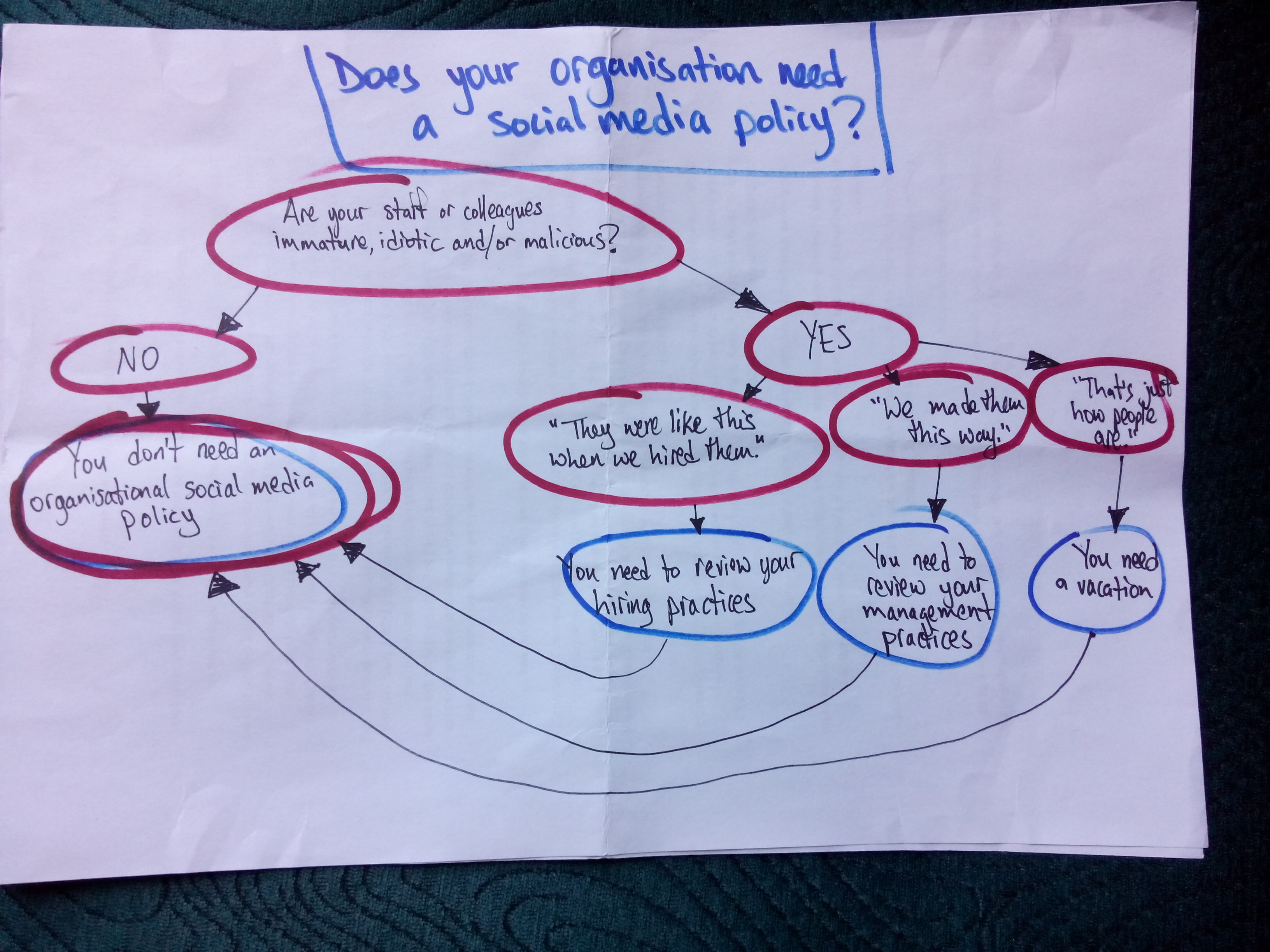Developing a social media policy
What is a social media policy?
A social media policy sets out the boundaries of an organisation’s social media presence. A social media policy will cover things like:
- who can post to the organisation’s social media tools and how this is policed
- what are the responsibilities of people who have access to the organisation’s social media tools
- what activity is covered by the policy (e.g. organisation’s and/or presenters’ Facebook, Twitter, etc)
- what kinds of content are appropriate or inappropriate to share
- what are the consequences for breaching the policy
Policies should be:
- Not too long: an A4 side or two is normally plenty
- Relevant: people need to understand WHY this policy is needed and HOW it relates to them
- Clear and understandable: in plain English, and with minimal jargon
In the videos below, Shane from Reprezent explains his perspective on why a social media policy is important, and Dan from BCB outlines the balance between station and individual volunteers’ responsibility.
Why you should have a social media policy
Many stations we have spoken to have had difficult experiences with social media in the past. A sample of the comments about social media include that it is a “minefield”, a “nightmare”, and that “we’ve been burnt a couple of times by presenters thinking more about themselves than the good of the station when tweeting!”
A social media policy exists to try and ensure that potential problems don’t arise in the first place, but that if/when they do there are clear steps for addressing the problems, including any action that needs to be taken. A policy gives you a document to refer back to when things go wrong, especially if volunteers are involved.
There are a number of things that can go wrong, including:
- Inappropriate posts by volunteers (e.g. defamation, racism)
- Volunteers’ posts don’t fit with desired tone of station’s feed
- How to deal with criticism of the station
The image below shows a humorous questioning of advice that you need a social media policy – urging instead to trust in the people you hire and your management processes. It’s created (and we’ve included it) to be provocative, and to get organisations to think about cultural change. However, this makes a number of assumptions (e.g. that people tweeting are staff, rather than volunteers), and presupposes a specific organisational culture and constitution. On balance, we think it’s probably wisest to have a policy in place, to encourage your volunteers to use social media positively, and to deal with any issues that might arise (based on your policy).
http://www.morelikepeople.org/social-media-policy-flowchart/
Developing your own policy
You probably already have something similar to a social media policy – i.e. your guidelines for broadcasters on your station. These guidelines will cover things like defamation, racism and other breaches of Ofcom’s broadcasting code. Social media is a platform for speech, so falls within the same guidelines for duty of care to other people, as well as the impact on the station’s reputation. If your station has a communication policy/strategy, this would also be highly relevant here.
Social media policies usually differ from organisation to organisation – but you could include the following points:
- Use common sense: if you wouldn’t be happy to say this to a crowded room of people, don’t say it!
- Don’t post messages, images, etc which could potentially be perceived as bullying, defamatory or offensive. (Or, as some internet forums say, “Don’t be a dick”.)
- Don’t bring the station into disrepute: you are a representative of the station and so should consider this when posting on the station’s feed
- Posts, comments, etc on social media sites are public, and not always appropriate for private conversations or sharing personal details with your friends
- If the station is criticised online, try to respond with respect for the other person and understanding of their perspective. If you are unclear on what action to take, contact a nominated station representative.
- You don’t have to reply to everything.
See a sample social media policy here (Word docx) – and feel free to use and adapt it as you see fit.
You might also benefit from taking a look at the BBC’s guidelines for staff’s personal accounts (summarised here) or Channel 4’s guidelines here.
What to do with your social media policy
- Go through the policy with staff and volunteers (either as team or one-to-one) – possibly as a training session
- Post your policy on noticeboards so that presenters can familiarise themselves with it
- Incorporate the policy into staff and volunteer training – making links with Ofcom’s broadcasting code










